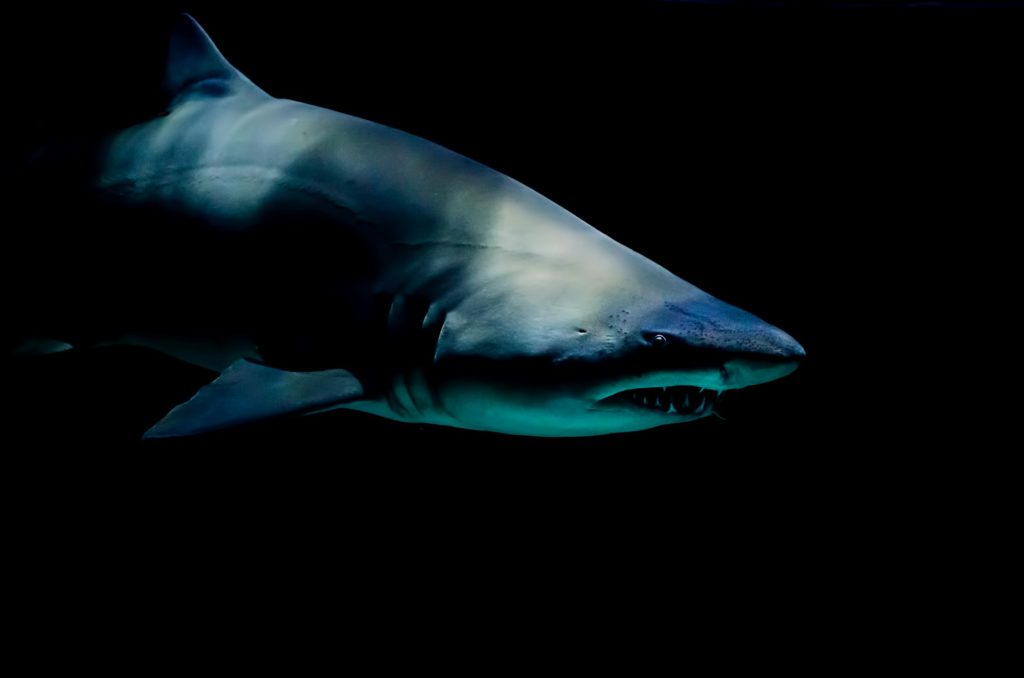South Africa is renowned for its diverse marine life and is often considered one of the top shark diving destinations in the world. With its breathtaking coastal landscapes and an abundance of shark species, it’s no wonder that adrenaline seekers and nature enthusiasts flock to this country to experience the thrill of shark diving. However, to make the most of your shark diving adventure, it’s crucial to choose the right time of year. In this article, we will explore the best seasons for shark diving in South Africa, highlighting the different shark species you can encounter and the unique conditions that each season offers.
The Big Five: Sharks of South Africa
Before delving into the best times for shark diving, it’s essential to understand which shark species you might encounter off the South African coast. South Africa is home to a diverse range of sharks, but there are five primary species that attract divers from around the world:
Great White Sharks: The iconic great white shark is a top draw for shark enthusiasts. Known for their enormous size, powerful presence, and striking appearance, these apex predators are found in various regions along the South African coast.
Ragged-Tooth Sharks (Sand Tiger Sharks): Ragged-tooth sharks are characterized by their menacing appearance with multiple rows of sharp teeth. They are commonly spotted at specific dive sites in South Africa, especially during their breeding season.
Tiger Sharks: Tiger sharks, known for their distinctive stripes, are known to roam South African waters. They are a formidable sight and can be found in various locations, depending on the time of year.
Bull Sharks: Bull sharks are notorious for their aggressive behavior and are often seen in estuaries and coastal areas, making them accessible for divers seeking an encounter with these fierce creatures.
Hammerhead Sharks: The scalloped hammerhead and the great hammerhead are occasionally spotted in South African waters. These unique-looking sharks are a rare and fascinating find for divers.
Now that we’ve introduced the major shark species, let’s explore the best times of the year to witness these magnificent creatures in their natural habitat.
Prime Shark Diving Season: May to September
The winter months in South Africa, from May to September, are considered the prime shark diving season. During this period, the waters are cooler, which attracts several species of sharks, including the great white, ragged-tooth, and tiger sharks.
Great White Sharks: May to September is undoubtedly the best time to encounter great white sharks around the Western Cape, particularly in Gansbaai and Mossel Bay. These months offer the highest chance of witnessing spectacular breaches and surface activity as these sharks hunt seals along the coast.
Ragged-Tooth Sharks: For those interested in ragged-tooth sharks, the winter months are when these creatures aggregate in large numbers in Aliwal Shoal and Protea Banks, both located on the east coast of South Africa. Divers can witness ragged-tooth sharks gathering for their annual breeding season, making it an incredible spectacle.
Tiger Sharks: Tiger sharks are also more commonly spotted during the winter months, particularly in the eastern coastal regions, such as Aliwal Shoal and Sodwana Bay. Diving with tiger sharks is an awe-inspiring experience, as they often appear in large numbers during this time.
Shoulder Seasons: March to April and October to November
The months of March to April and October to November are considered shoulder seasons for shark diving in South Africa. While not as consistently active as the winter months, these periods still offer fantastic diving opportunities.
Great White Sharks: During March and April, there’s a transitional period when great white sharks can still be seen, albeit with slightly less predictability compared to the peak winter months. Similarly, in October and November, the season transitions back to warmer waters, and you might still encounter great whites, but with decreasing frequency.
Ragged-Tooth Sharks: Ragged-tooth sharks can be encountered year-round in South Africa, but their numbers peak during their breeding season, which primarily occurs during the winter months. Nonetheless, diving with these majestic creatures is possible in the shoulder seasons, with a slightly lower chance of witnessing their aggregation.
Tiger Sharks: Tiger sharks can also be found during the shoulder seasons, although the chances of encountering them are lower compared to the winter months. If you specifically aim to dive with tiger sharks, it’s advisable to plan your trip during the peak winter season.
Off-Season: December to February
The summer months of December to February are generally considered the off-season for shark diving in South Africa. During this time, the water temperatures rise, and many shark species migrate to different areas, making encounters less likely.
Great White Sharks: From December to February, the great white shark population around the Western Cape diminishes as they follow their prey to cooler waters. While it’s still possible to spot them during these months, the chances are significantly lower than during the winter season.
Ragged-Tooth Sharks: Ragged-tooth sharks disperse during the warmer months, and their numbers decrease along the east coast dive sites. Divers seeking to observe ragged-tooth sharks in large congregations should avoid visiting during the summer.
Tiger Sharks: Tiger sharks are less commonly seen in South African waters during the summer months, as they often move to different regions with cooler water temperatures. Therefore, if you specifically wish to dive with tiger sharks, it’s advisable to plan your trip during the winter or shoulder seasons.
Factors Affecting Shark Diving Conditions
Apart from seasonal considerations, several factors can impact shark diving conditions in South Africa:
Water Temperature: Water temperature is a crucial factor that influences the presence of sharks. Cooler water temperatures, typical during the winter months, attract more shark species to South African waters.
Ocean Currents: Ocean currents play a significant role in the distribution of prey, which, in turn, affects the movement of sharks. Understanding the prevailing currents in different regions can help divers plan their trips effectively.
Prey Availability: Sharks follow their prey, so understanding the distribution of seals, fish, and other marine creatures can increase the likelihood of encountering sharks during your dive.
Diving Location: South Africa offers numerous dive locations, each with its unique shark species and conditions. Research the specific dive site you plan to visit to maximize your chances of encountering your desired shark species.
Shark diving in South Africa is a thrilling and unforgettable experience that allows you to come face to face with some of the ocean’s most magnificent predators. To make the most of your shark diving adventure, it’s essential to choose the right time of year. While the prime season for shark diving in South Africa is during the winter months from May to September, it’s worth noting that shark encounters are possible year-round, with shoulder seasons in March-April and October-November providing excellent opportunities as well.
Whether you’re seeking the iconic great white shark, the awe-inspiring ragged-tooth shark, or the elusive tiger shark, South Africa offers diverse opportunities for shark diving enthusiasts. Remember to consider the factors that influence shark diving conditions, such as water temperature, ocean currents, prey availability, and your chosen diving location. By carefully planning your trip, you can increase your chances of witnessing these incredible creatures in their natural habitat while ensuring a safe and unforgettable adventure beneath the waves of South Africa’s stunning coastline.
Tips for a Memorable and Responsible Shark Diving Experience
While planning your shark diving adventure in South Africa, there are several important considerations to ensure a memorable and responsible experience:
Choose a Reputable Operator: Research and select a well-established and responsible dive operator with a strong safety record. Ensure they adhere to ethical and sustainable diving practices, prioritizing the welfare of both sharks and divers.
Dive Certification and Experience: Ensure that you possess the necessary scuba diving certification and experience level required for shark diving. Some operators may have specific requirements for divers participating in shark encounters.
Safety Precautions: Familiarize yourself with safety protocols and guidelines provided by the dive operator. Follow their instructions rigorously to ensure your safety and the safety of the sharks.
Eco-Friendly Practices: Opt for operators that promote eco-friendly practices, such as no-touch policies, respectful distance from sharks, and responsible wildlife interaction. Avoid operators that engage in chumming practices that could negatively impact the environment and behavior of sharks.
Protect the Environment: Be a responsible diver by minimizing your impact on the marine environment. Avoid littering, refrain from touching or disturbing marine life, and always follow the principles of “leave no trace” diving.
Understand Local Regulations: Familiarize yourself with local regulations and conservation efforts aimed at protecting shark populations in South African waters. Comply with any legal requirements and support organizations working towards shark conservation.
Photography and Videography: If you plan to capture your shark diving experience through photography or videography, use appropriate equipment and techniques that do not harm or disturb the sharks. Respect the privacy and comfort of other divers by not obstructing their views.
Shark Conservation: Educate yourself about the importance of shark conservation and the role sharks play in maintaining the balance of marine ecosystems. Share your knowledge with others to promote shark conservation awareness.
Weather and Sea Conditions: Keep a close eye on weather and sea conditions when planning your shark diving trip. Adverse weather can affect the visibility and safety of dives, so it’s essential to prioritize safety over shark encounters.
Dive Insurance: Ensure you have appropriate dive insurance that covers any potential accidents or emergencies during your shark diving expedition.
Shark diving in South Africa offers a unique opportunity to connect with these magnificent creatures while experiencing the country’s stunning coastal landscapes. Choosing the right time of year for your shark diving adventure is essential, as it can significantly impact the likelihood of encountering various shark species. While the winter months from May to September are considered the prime season, shark encounters are possible year-round, with shoulder seasons in March-April and October-November providing excellent opportunities as well.
Responsible shark diving involves not only selecting the right season but also choosing a reputable dive operator, prioritizing safety, and following eco-friendly practices. By respecting the environment and the animals you encounter, you can contribute to the conservation of these incredible predators and ensure that future generations can continue to enjoy the thrill of shark diving in South Africa.
Ultimately, whether you’re drawn to the grace of the great white shark, the beauty of ragged-tooth sharks, or the mystery of tiger sharks, South Africa’s waters offer a world-class shark diving experience that will leave you with memories to cherish for a lifetime. Embrace the adventure, be a responsible diver, and savor the awe-inspiring encounters with these remarkable ocean inhabitants.







